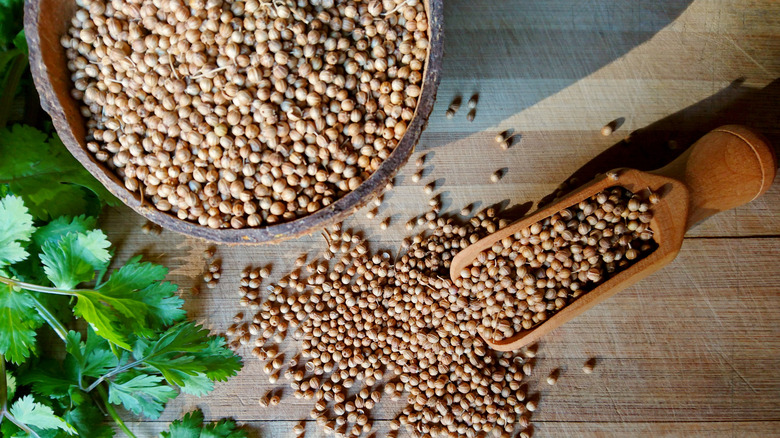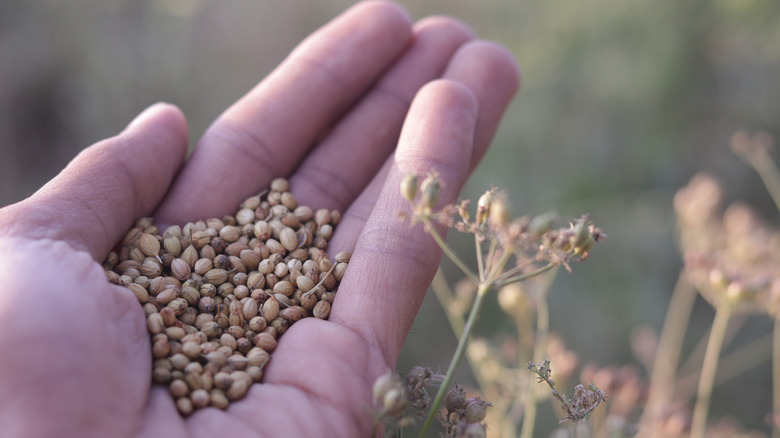The Incredible Benefits Of Eating Coriander
Whether you have made it a staple on your spice rack or not, you are probably familiar with coriander. It's an herb used to season dishes in many different cuisines around the world and it's grown in Europe, southwestern Asia, and northern Africa (via SPICEography). It's believed that coriander is one of the oldest spices, first used as such in food around 5000 B.C. (via Faith & Culture). The leaves of the plant are known as cilantro; it's the seeds, themselves, of coriander that are ground up and savored for their own unique aroma and flavor.
Coriander seeds are citrusy and nutty. It's an MVP for everything from curries to pickling to sweets like shortbread. You can even eat the seeds on their own, as Tasting Table recommends. Healthline also points out, there are serious benefits to eating coriander however you prefer, in addition to its taste. SPICEography says you can substitute caraway seeds with coriander; Raw Spice Bar suggests cumin, masala curry powder, or even dried oregano. When something has the lovely aromas and flavors of coriander also touts its strong health boosts, it's worth making sure you have some on hand at all time.
Coriander helps alleviate numerous medical conditions
Healthline lists an impressive handful of health advantages of coriander. In seed, extract, or oil form, coriander can help lower blood sugar by "promoting enzyme activity that removes sugar from the blood." People taking medication for diabetes should actually limit their consumption of coriander for this reason.
Coriander is a source of antioxidants, so it can help prevent cellular damage from free radicals and also lower inflammation. A study showed coriander's antioxidants slowed the growth of lung, prostate, breast, and colon cancer cells, Healthline writes. That inflammation-fighting ability also comes into play against Parkinson's, Alzheimer's, and multiple sclerosis.
Other studies have shown that coriander can help keep blood pressure and cholesterol low, therefore driving down important heart disease risk factors. It may also be great for gut health, as well as aiding healthy digestion, and could assist in warding off infections and bacteria like Salmonella. Coriander can even aid your skin health and beauty efforts: its antioxidants can help reduce signs of aging in skin.
While coriander's leaves, cilantro, can be divisive with their own flavor and aroma profile, Healthline says that some of these health benefits can also come from this form, should you be #TeamCilantro. Between coriander seeds and coriander leaves, there is plenty of great taste for any preference, and can really add something special to any dish. Such an array of healthful properties is just more motivation to get cooking with this spice.

